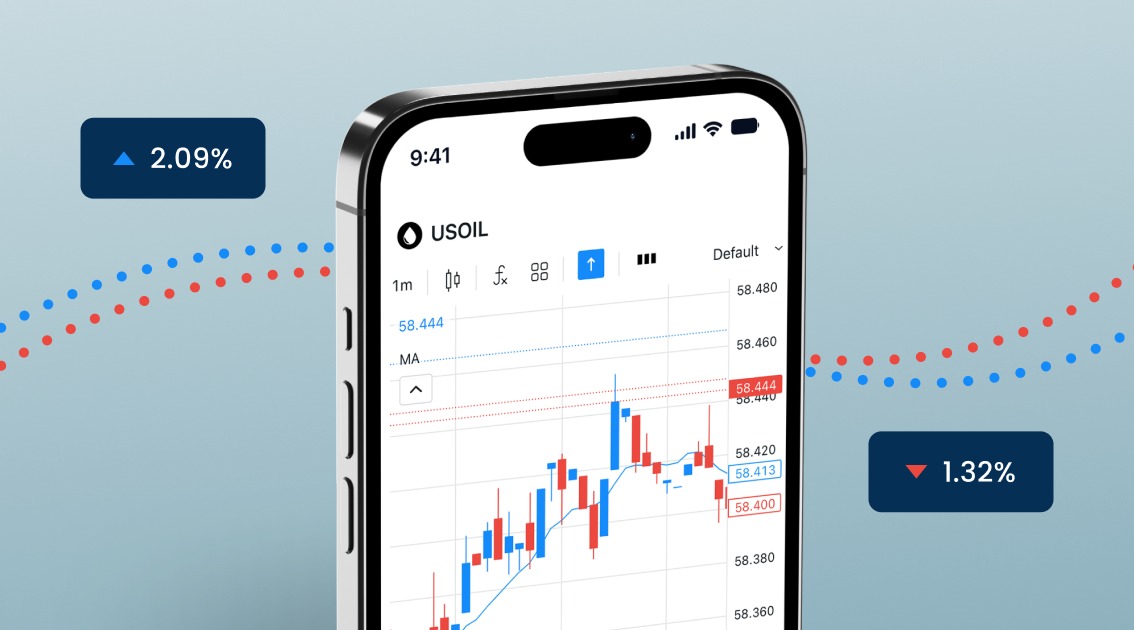Traditional businesses have long controlled the remittance market, but the rise of fintech firms is changing the picture. Fintech firms are using cutting-edge technologies and business strategies to provide faster, cheaper, and more convenient remittance services. In this article, we will look at how fintech firms can put an end to traditional remittance services.
We will examine how fintech firms are altering the remittance industry and the ramifications for customers and the global economy, from the benefits of digital platforms to the transformational power of blockchain technology.
Traditional Remittance Services' Limitations
Traditional remittance services have a reputation for exorbitant fees, lengthy transaction periods, and limited accessibility. The use of middlemen, such as banks and money transfer companies, frequently results in high costs and poor exchange rates.
Furthermore, the lengthy processing delays and time-consuming documentation make the experience inconvenient for both senders and recipients. Because of these constraints, there is a growing desire for alternative alternatives that provide faster, more inexpensive, and user-friendly remittance options.
Startups in Fintech and Digital Platforms
To deliver seamless and effective remittance services, fintech entrepreneurs are embracing digital platforms. These firms provide users with an easy way to send and receive money across borders by employing mobile apps and web platforms. The remittance procedure is streamlined by digital platforms, which eliminate the need for physical branches and paperwork. This allows customers to initiate transactions at any time, from any location, and at often cheaper prices than traditional remittance providers.
Blockchain Innovation and Cryptocurrencies
Blockchain technologies and cryptocurrencies have emerged as game changers in the remittance industry. Blockchain technology is being used by fintech businesses to build decentralized and secure networks for cross-border transactions. When compared to traditional ways, blockchain allows transactions to be handled more quickly and at a fraction of the cost.
Cryptocurrencies like Bitcoin and Ripple act as mediums of exchange, allowing for borderless payments without the use of intermediaries. The usage of cryptocurrencies eliminates the need for repeated currency translations, lowering expenses and enhancing efficiency even further.
Platforms for Peer-to-Peer (P2P) Remittances
Another novel option offered by financial businesses is peer-to-peer remittance networks. These websites connect those who wish to send money to others who need money, essentially bypassing established remittance routes.
P2P remittance services can offer lower fees and better exchange rates by eliminating intermediaries. Furthermore, the integration of mobile technologies and digital wallets enables rapid and easy transactions, making it an appealing option for consumers who value speed and affordability.
Compliance and Regulatory Considerations
While fintech entrepreneurs disrupt and innovate the remittance sector, regulatory issues are critical. Money transfers and cross-border transactions are part of remittance services, which are governed by regulatory frameworks designed to prevent money laundering and safeguard consumers.
To operate lawfully and preserve consumer trust, fintech businesses must navigate these restrictions and create compliance mechanisms. Collaboration with regulatory agencies, as well as compliance with Know Your Customer (KYC) and Anti-Money Laundering (AML) rules, are critical for the long-term viability and validity of fintech-powered remittance services.
Consumer and Global Economic Impact
Fintech-driven remittance services assist consumers and the global economy in a variety of ways. Lower fees and more competitive exchange rates save money for both senders and recipients, especially those in low-income nations who rely significantly on remittances. Increased transaction speed and convenience promote greater financial inclusion by allowing individuals to access funds more quickly and effectively.
Furthermore, by lowering operational costs and enhancing efficiency in the global remittance sector, digitization of remittance services contributes to economic growth. Savings created by fintech businesses can be allocated to productive investments, encouraging economic development even further.
Opportunities and Difficulties
Several hurdles persist despite the apparent potential of fintech firms to disrupt traditional remittance services. As previously said, regulatory obstacles necessitate fintech companies navigating complex compliance frameworks, which may be time-consuming and costly. Building consumer trust is also critical, as the remittance market is based on dependability and security. To achieve consumer trust, fintech businesses must prioritize data protection, cybersecurity, and transparent cost structures.
These challenges, however, create opportunity for creativity. Fintech startups can cooperate with established financial institutions and regulatory agencies to create frameworks that balance innovation and regulatory compliance.
Partnerships between incumbents and fintech firms can exploit both parties' capabilities, increasing consumer trust and encouraging widespread use of digital remittance services.
The Biggest Hurdles to Overcome
The rise of fintech companies has disrupted various sectors of the financial industry, including remittance services. Fintechs offer innovative solutions that promise faster, cheaper, and more convenient ways to send money across borders. However, to gain a significant market share in the remittance industry, fintech companies face several hurdles that need to be overcome.
Establishing Trust and Credibility
One of the primary hurdles for fintechs in the remittance space is building trust and credibility among consumers. Traditional remittance services have long-standing reputations and established customer bases. Fintechs, on the other hand, often face skepticism due to their relative newness and lack of a well-known brand presence. To overcome this hurdle, they must invest in building trust by implementing robust security measures, complying with regulatory requirements, and providing transparent and reliable services. Partnerships with established financial institutions can also help lend credibility to fintech companies and reassure customers of their legitimacy.
Regulatory Compliance and Licensing
Compliance with regulations and obtaining the necessary licenses is a significant challenge for fintechs entering the remittance market. Each country has its own set of regulations governing money transfers and cross-border transactions. Navigating this complex regulatory landscape requires considerable resources and expertise. Fintechs must invest in legal and compliance teams to ensure they meet the stringent requirements of multiple jurisdictions. Collaborating with regulatory bodies and demonstrating a commitment to anti-money laundering (AML) and know-your-customer (KYC) practices will help them gain the necessary licenses and regulatory approvals, enabling them to operate legally and expand their market share.
Accessibility and Infrastructure
Another hurdle for fintechs in gaining market share against traditional remittance services is ensuring accessibility and robust infrastructure. While fintech solutions often rely on digital platforms and mobile apps, access to smartphones and reliable internet connectivity can be limited in certain regions. These companies need to develop innovative strategies to address the digital divide and expand their reach to underserved communities. This may involve partnerships with local agents or utilizing alternative channels such as physical kiosks or agent networks to reach customers who may not have access to smartphones or internet services.
Network Effects and Established Relationships
Traditional remittance services have built extensive networks and established relationships with banks, financial institutions, and cash pickup locations around the world. These network effects provide them with an advantage over fintechs that are just entering the market. As such, they should actively collaborate and forge partnerships with banks, payment processors, and local agents to expand their reach and establish a widespread network. Building strategic alliances and leveraging existing infrastructures can help them gain market share by tapping into established networks and distribution channels.
Customer Education and Awareness
One of the challenges fintech companies face is educating customers about the benefits and advantages of using their services over traditional remittance providers. Many individuals may be accustomed to the familiarity and convenience of traditional channels and may be unaware of the cost savings, faster transaction speeds, and added convenience offered by fintechs. Fintech companies need to invest in customer education campaigns to raise awareness about their services, highlighting the advantages they provide. This can include marketing efforts, educational content, and engaging with local communities to showcase the value proposition of fintech remittance solutions.
Remittance Services in the Future
Fintech entrepreneurs hold the key to the future of remittance services. These firms have the potential to transform cross-border money transfers due to their agility, technological skill, and customer-centric approach. We should expect even faster, more cheap, and user-friendly remittance services as fintech companies continue to innovate and optimize their solutions.
Furthermore, ongoing blockchain technology improvements and the possible inclusion of central bank digital currencies (CBDCs) may further change the remittance market. CBDCs have the potential to facilitate quick and low-cost transactions, eliminating dependency on intermediaries and increasing financial inclusion.
Conclusion
Finally, fintech entrepreneurs are driving change in the remittance market. These firms provide faster, cheaper, and more convenient alternatives to traditional remittance services via digital platforms, blockchain technology, and peer-to-peer networks. While regulatory compliance and trust building remain issues, the potential benefits for consumers and the global economy are significant.
Fintech businesses that focus innovation, regulatory compliance, and customer-centric solutions will most likely influence the future of remittance services. As these businesses continue to disrupt the sector, we may see traditional remittance services gradually shrink and the creation of a more efficient, inclusive, and cost-effective global remittance ecosystem.

















